We tend to think cats are distant animals that can come off as quite aloof, but it turns out they can become just as attached to you as dogs.
Now it can certainly be nice to spend time curled up on the sofa with your kitty, but what happens when that attachment becomes unhealthy and separation anxiety starts to develop?
A cat shows signs of anxiety when they are away from you or another pet pal.
So how do you know if your cat isn’t happy when they are left alone? Well, there are a few signs you can look out for, such as excessive noise or grooming, but we will look into these in more detail later. We’ll also look at what causes separation anxiety in cats, ways to prevent it, and the treatments available for cats.
The Signs of Cat Separation Anxiety
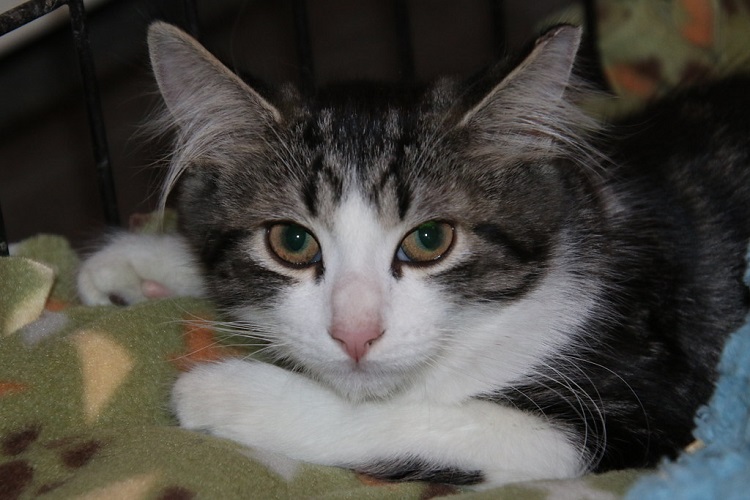
Like with any other issue in cats, you may find symptoms and signs of anxiety in your cat, and this is okay! This may help you figure out that your cat is dealing with separation anxiety rather than it being anything else.
Here are a few signs that may set the warning bells off in your head that your cat is dealing with anxiety. Remember, if you think your pet has any of these signs, then it’s worth scheduling a check-up with your vet or veterinary behaviorist to see how they can help.
Excessive Meowing, Crying, or Moaning
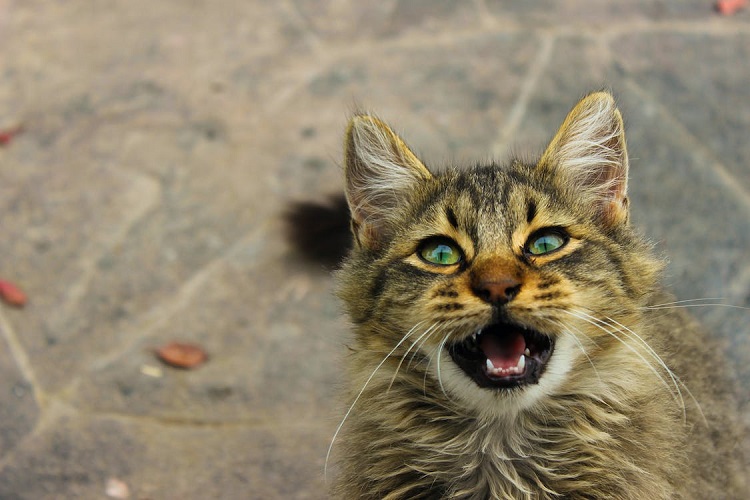
Naturally, if your cats experience separation anxiety, one of the first signs may be excessive meowing, crying, or moaning. This is a fairly common sign of anxiety in cats and is more of an emotional response. If your cat has become increasingly noisy and sounds in pain, it could be dealing with separation anxiety.
Eating Too Fast or Not Eating at All
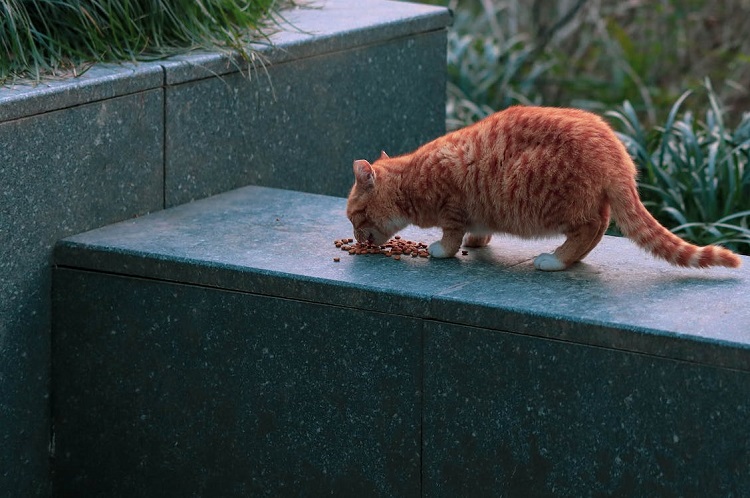
Cat’s separation anxiety presents itself in many ways, and eating too fast or not eating at all is one of the signs. Your cat may feel separated from you; because of this, they may eat too fast or not eat at all as a coping mechanism for missing their owners.
Often, your cat may be too stressed to even consider eating, so it’s important to keep a close eye on its eating habits.
Excessive Self-grooming
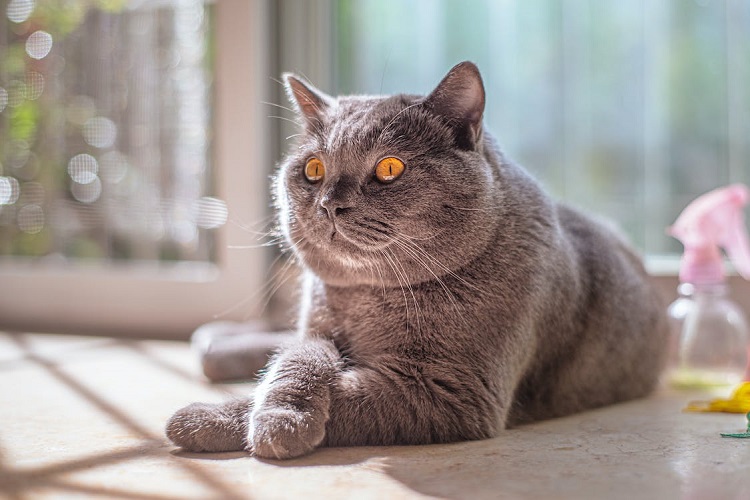
Another way a cat shows signs of separation anxiety is through excessive self-grooming. Yes, all cats self-groom; this is what they do. However, if your cat does this excessively, it can quickly become a problem – hair loss and fur balls could also be knock-on symptoms.
So, if your cat is grooming itself much more frequently than normal, it’s worth considering it as a sign that could point to anxiety.
Elimination Outside the Litter Box
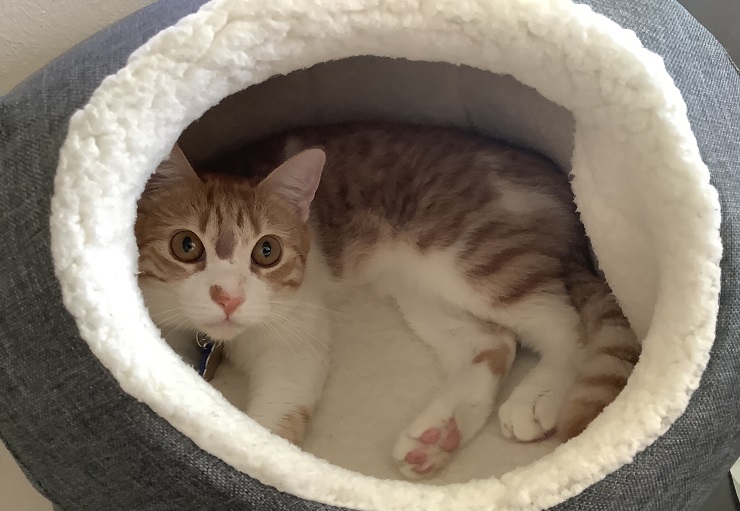
Trust us, as cat owners; we know that elimination outside the litter box is a massive pain for pet owners – sometimes, there’s nothing more infuriating. However, if your cat is eliminating outside the litter box or hiding in the litter box, it may indicate anxiety.
Cats tend to feel distressed when left alone, so this nervousness may commonly occur by urinating outside the litter box. It’s important to try and tackle this immediately as you don’t want it to turn into a nasty habit, leaving you to find smelly surprises in your room.
Destructive Behavior
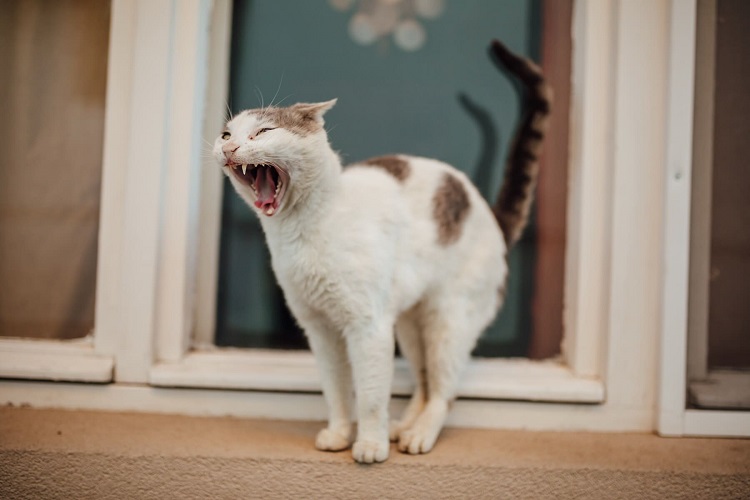
This is another sign that anxiety could be your cat’s problem and is a simple way to convey their distress. When anxious, some cats can be quite destructive, similar to dogs. This behavior is also fairly common in kittens too.
You may find your cat clawing at the door when separated from you. This could be because they’re trying to get to you or want to get out of solitary confinement.
Excitement upon Your Returning Home That’s out of the Ordinary
It is natural for your cat to be excited when you return home, especially if you have been gone for a long time. However, you may find that your cat is way more excited to see you than normal, which is another sign of separation anxiety in cats.
If you notice this behavior is particularly out of the ordinary, it may be worth looking for other telltale signs your cat may be experiencing to determine if it is suffering from anxiety.
Vomiting Food or Hairballs
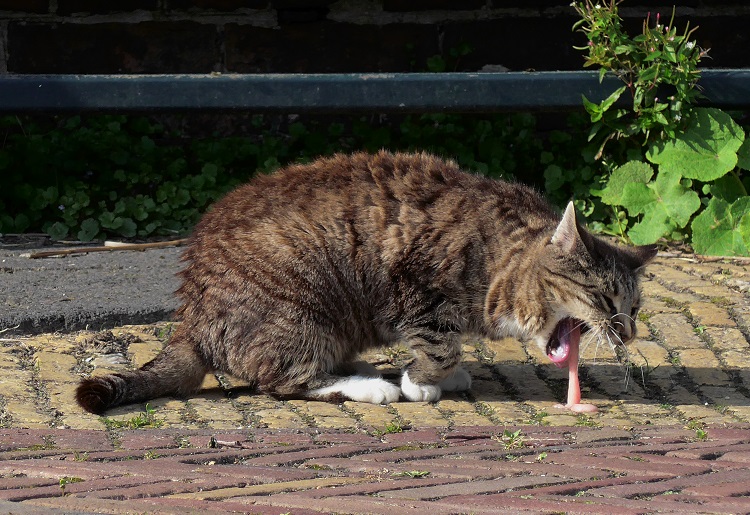
Vomiting is also a common sign of separation anxiety in cats. However, this will most likely happen when you’re not there, so look around when you come back to see if your feline has left you any surprises.
They could vomit anything up, from food to fur balls, so it’s important to pay attention to this if you think your cat is suffering.
Trying to Escape
We’ve touched on this briefly when discussing destructive behavior. Your cat may want to escape to be with you, especially when you’re leaving. Keep a close eye as it could be a big sign of anxiety due to being separated.
What Causes Separation Anxiety in Cats?
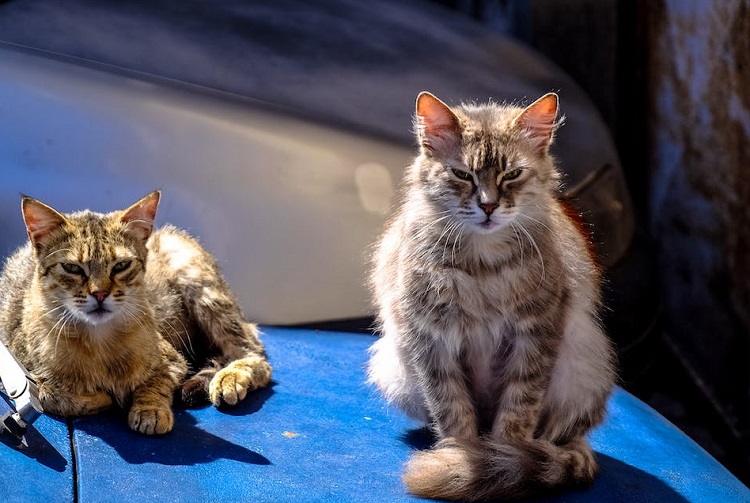
There are many factors that can cause your cat to develop separation anxiety. Anything from the cat’s environment to them being sick. But it can also be something genetic which is a lot harder to treat.
There are other things that can lead to a cat showing signs of separation anxiety. Female cats are diagnosed more than male cats, so be aware when choosing your next kitten.
If your cat doesn’t tend to go outside often and lives strictly indoors, this could be another cause. This massively cuts down on their socializing, especially if no other pets are around.
Some other causes could be that they were bottle raised or orphaned when they were a kitten, or there has been a change in routine. This could be due to changing owners or if their owners worked at home during the pandemic but are now going out to work every day.
How Is Separation Anxiety in Cats Diagnosed?
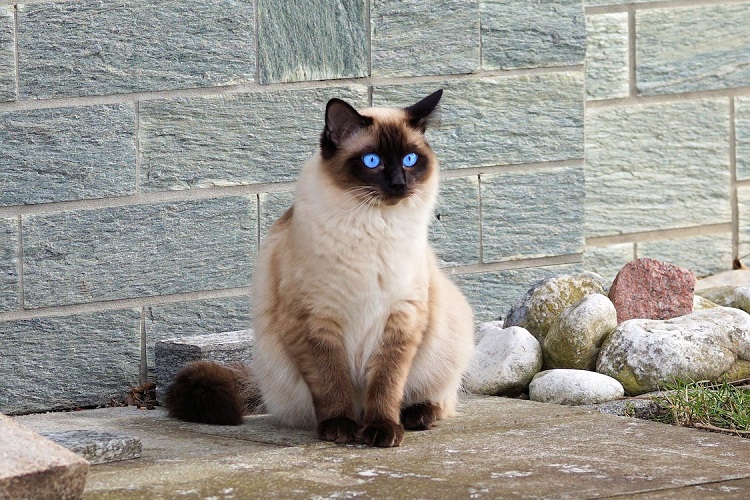
The symptoms of a cat with separation anxiety can be very similar to other health issues, which is why it can be tricky to diagnose. We know how hard this can be for pet parents, but no need to worry; there are things you can do to help!
Your veterinarian will begin by ruling out medical issues that might have similar symptoms. This will probably include blood work and a urinalysis. If these all come back clear, it’s time for some questions.
The vet will ask you a series of questions about your cat’s behavior and environment to determine if they are experiencing separation anxiety or if it is just down to stress.
How to Minimize Separation Anxiety in Cats
So your vet has just diagnosed your cat with separation anxiety, and now you’re wondering how to help them. Well, the solutions can be split into three categories
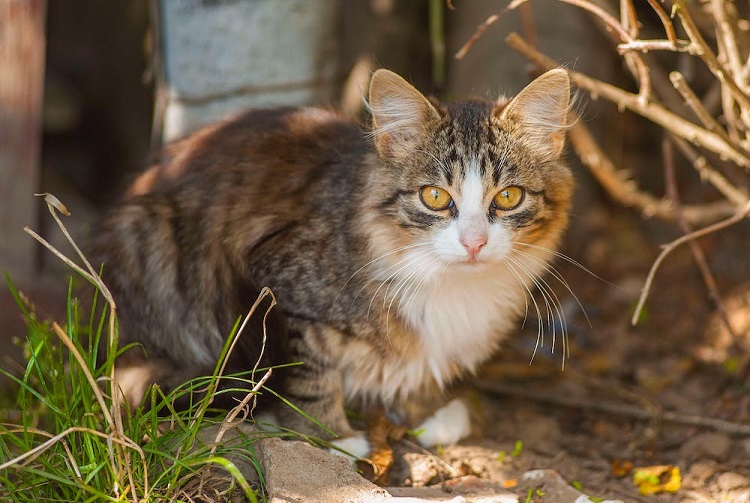
- Managing the environment
- Pharmaceuticals
- Behavior modification
Management of the Environment
Managing the cats’ environment is one of the easier ways to help them deal with their anxiety, and there are a few ways to go about it. Let’s take a look!
Provide Enrichment Activities
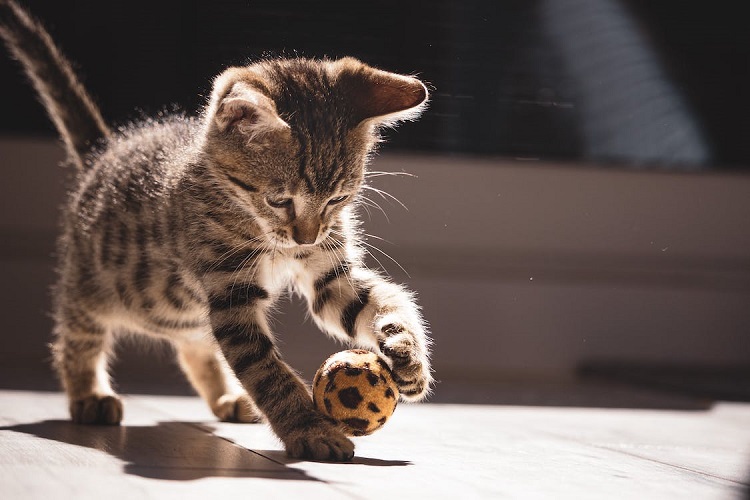
Keeping your feline busy when you’re out is one of the best ways to help them. There are endless cat enrichment activities and toys to choose from that will keep them busy and allow you to keep an eye on them.
You can get a specially designed camera that allows you to interact with your cats when you’re not at home. You can also try puzzle feeders, which release food once your cat has solved the puzzle. This means they get plenty of treats, but their mind isn’t wandering.
You can even make puzzle feeder toys from things you have lying around the house, like blankets, old clothing, or towels!
Ignore Attention-Seeking Behaviors
This may sound pretty mean but ignoring any attention-seeking behavior can help with behavior modification and decrease anxiety. This is a good way to counteract your cat’s separation anxiety syndrome.
When you give your cat attention at home, make sure they are calm and collected. This will make your cat feel like they don’t need to seek attention, and your cat’s anxiety about being left alone may decrease.
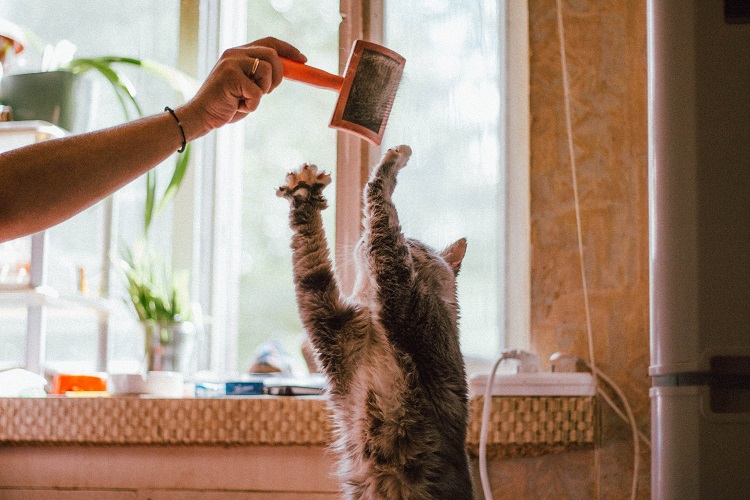
Create and Maintain a Consistent Routine
Consistent routines are a fantastic example of how to minimize separation anxiety in your cat. Keeping life consistent and having fixed routines, for the most part, will help your felines feel safe and secure.
Very much in the same way that children love routine, so do our pets. They get used to the comings and goings of their home, which will help minimize anxiety and stress in your house.
Pharmaceuticals and Nutraceuticals
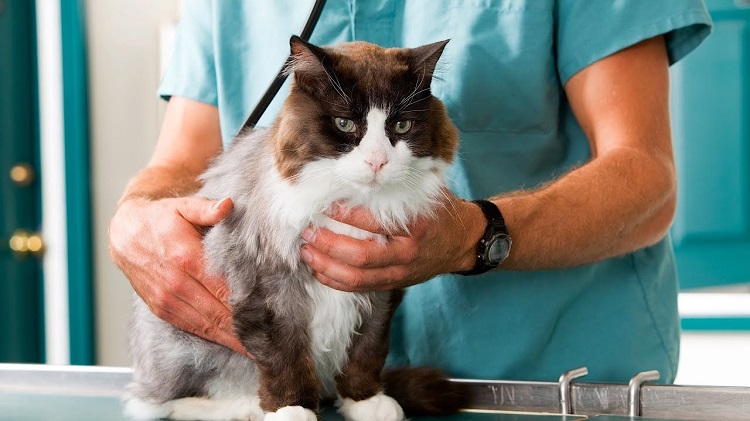
Medication should be the last straw when treating separation anxiety in any pet, cats included. But if you decide on this route, using various medications like pharmaceuticals and nutraceuticals can certainly help, and your vet may recommend these.
Supplements may show a 25% improvement, while medication could increase this further to 50%. So, if the other solutions aren’t providing significant improvement, it may be worth considering medication for your cats.
How to Prevent Separation Anxiety in Cats
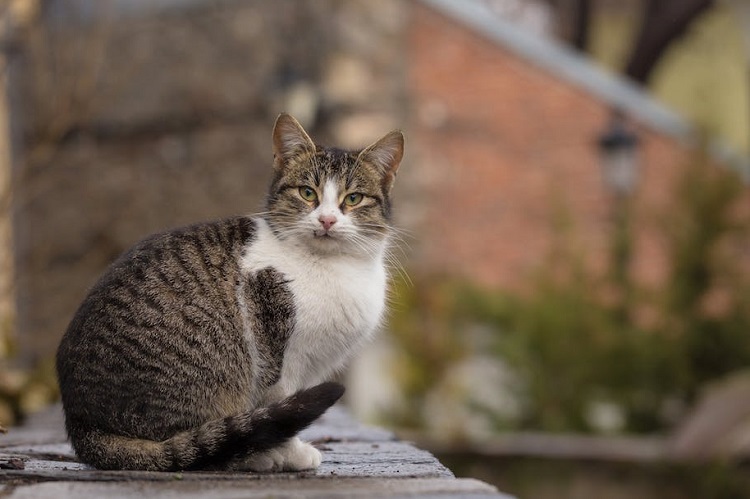
Preventing separation anxiety is something new altogether, and as an owner, you may want to talk to your veterinarian about any steps you can take. A veterinarian can advise you on what to do next safely so as not to cause any medical problems. When in doubt, talk to them!
An example of what you could do for your pet is to get a new cat. Many cats showed that having a bonded pair or a combination of humans and animals in the house can help with stress. It may seem like a big deal, but it really can help!
Encouraging independence can also prevent stress and can have a calming effect on your cats. Leaving regularly but not too much can help establish a routine, and they’ll get used to you leaving and grow independent.
Of course, there may be other options for preventing stress in your cat, but these are a few examples that could benefit both of you.
Conclusion
If your fluffy best friend is suffering and you are here looking for answers, then there is no need to get worried. Is your cat struggling with stress, their behavior has become unusual, and their personality has changed dramatically?
They may well be signs of separation anxiety, but there are several ways you can counteract this. When you create a solid schedule, your kitten will be able to identify when you leave and will feel more secure when you do.
Playtime is also a good way to minimize your cat’s stress and make them feel safer. If you have questions, you can always consult a vet or veterinary behaviorist to discuss this further. There are many great options to help you deal with this!
We hope this article helped you understand the importance of ensuring your cat’s environment is full of things to do, an established routine, and companionship, all of which will help decrease stress levels.












